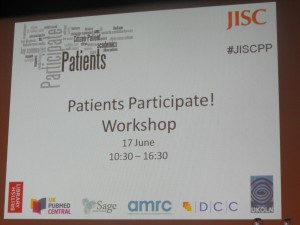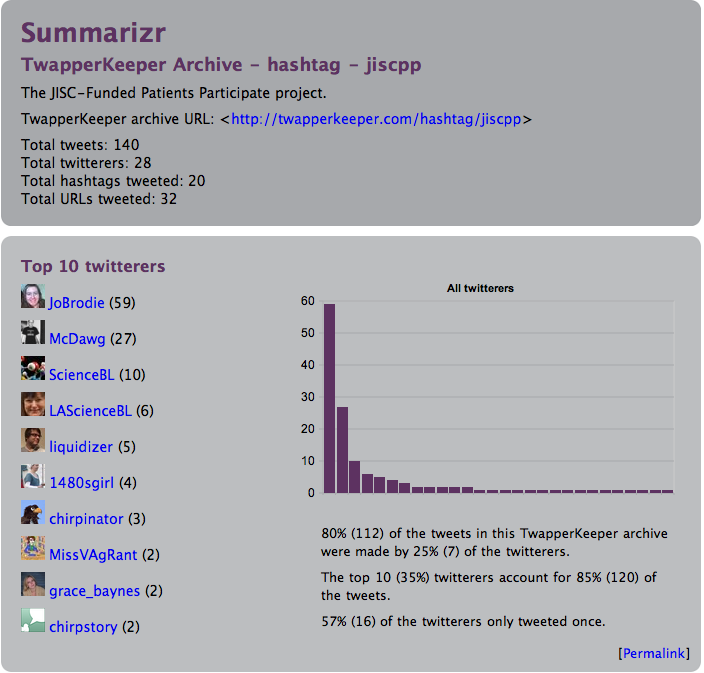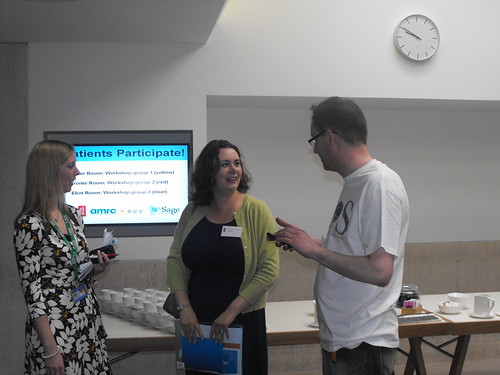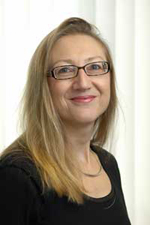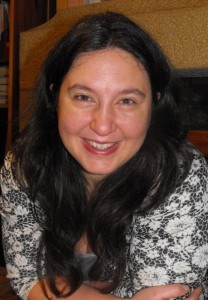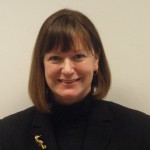Bridging the Gap between Information Access and Understanding in Health Research
17 June 2011
The British Library Conference Centre
We now have more access than ever to scientific papers and summaries of biomedical and health research. Anyone with a computer and an internet connection can read the latest research results due to initiatives like UK PubMed Central which provides free access to scientific peer-reviewed papers.
Having access to the information does not always help patients or the public make sense of scientific research. This workshop will examine ways that we might address the gap, through the development of ‘community content’ and the application of web technologies that might help people to make sense of the science.
We want to bring together people from different communities- patients, carers, researchers, charities, and technologists– to explore what the motivations, challenges and barriers to biomedical information access, comprehension, and wider use are. We hope to develop new ideas to enable the opening up of publicly-available, scientific literature to a wider audience.
Twitter: #JISCPP
Workshop Programme
10:30 Registration and coffee
11:00 Welcome to the workshop
Liz Lyon (UKOLN, University of Bath) – Patients Participate: Origins and Overview
11:15 Introduction to the project from the project partners
Lee-Ann Coleman (British Library) – Accessing Biomedical and Health Information
Sara Ellis (Association of Medical Research Charities) – Patient Perspectives on Research Findings
Professor Melanie Welham (Centre for Regenerative Medicine, University of Bath) – Communicating Research Beyond Academia
11:45 Assigning workshop groups, brief introductions and setting questions
12:15 Lunch
13:00-3:20 Workshop groups (including afternoon tea break)
The workshop groups will explore what role web-based, biomedical information resources, technologies and communities can play in translating emerging research findings into plain English so that all those interested, are able to trust, understand and access biomedical and health information.
To help focus discussions, the broad and topical theme of stem cell research will be used.
The groups will be asked to share their views on what they like and don’t like for a range of resources, whether it be the way the information is presented, ease of use of the technology, or any other factors.
This will be structured around a set of questions and scenarios to help understand:
1. What motivates different types of user to look for biomedical information and to revisit one information resource over another?
2. What are the barriers – perceived or real – to online access to biomedical information?
3. What are the key factors for the way biomedical information is presented that enable easy comprehension by a range of people?
4. What are the types of web technologies that help people find and use biomedical information for their own specific purposes? What benefits have emerged from using online media?
5. What is the potential for particular communities, for example patients or carers, to make use of biomedical information already available online to support better and wider understanding of current collective knowledge?
6. How could the different communities work together eg patients, charities and researchers in enabling access to and facilitating translation of biomedical information?
Through the workshop we aim to produce a set of simple best-practice recommendations on how best to leverage different communities and tools to enhance the communication of biomedical research. A key output will be a set of Citizen-Patient case studies documenting approaches to promote online engagement, access and community evaluation for non-professionals.
3:20 Feedback from workshop groups and Summary Recommendations (Liz Lyon)
Reporting from each workshop group on discussions aligned to 5 questions/recommendations under the broad themes of:
- Motivations and Barriers
- Good and Bad Examples
- Potential for Improving and Collaborating
3:50 Final guest speakers & Q&A
Graham Steel – Patients Like Me
Simon Denegri – Chief Executive, Ovarian Cancer Action & Chair Involve.
4:30 Close
